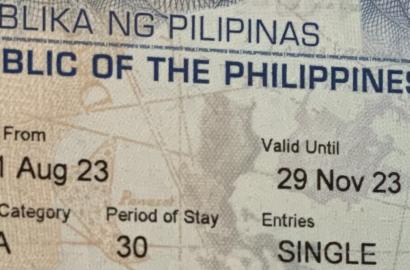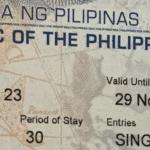Explore Our Exciting New Property Listings Now Available in Prime Locations!
The Philippines is a stunning archipelago of more than 7,000 islands, offering diverse cultures, beautiful beaches, and welcoming locals. Whether you're visiting as a tourist, planning to retire, or exploring investment opportunities, understanding the visa process and departure requirements is essential. Here’s an in-depth guide to help expats navigate the system.
Visa Requirements for the Philippines
Entry Requirements
Expats traveling to the Philippines must meet the following general entry requirements:
- Passport Validity: Your passport must be valid for at least six months beyond your intended stay.
- Return Ticket: You must present a return or onward travel ticket upon arrival.
- Visa-Free Entry: Citizens of many countries can enter the Philippines visa-free for stays of up to 30 days. Check with the Philippine Bureau of Immigration to confirm eligibility.
Types of Visas
Depending on your purpose of travel, you can choose from several visa options:
- Tourist Visa (9A):
- Valid for 30 to 59 days depending on your nationality.
- Extensions are available if you wish to stay longer.
- Business Visa (9A):
- For individuals attending conferences, conducting business negotiations, or exploring investments.
- Requires an invitation letter from a Philippine company or organization.
- Special Resident Retiree’s Visa (SRRV):
- Designed for foreign retirees.
- Requires a deposit in a Philippine bank and proof of pension or monthly income.
- Work Visa (9G):
- For expats employed in the Philippines.
- Requires sponsorship from a Philippine-based employer.
- Student Visa (9F):
- For foreign nationals enrolling in accredited Philippine schools.
- Requires proof of admission and financial capability.
Visa Extension
If you wish to extend your stay, the Philippines offers straightforward options for extending your visa.
Where to Go
- Bureau of Immigration Offices: Visit one of the Bureau of Immigration’s (BI) main or satellite offices located across the country.
- Accredited Travel Agencies: Some agencies can process extensions on your behalf for a fee.
Cost
- Initial Extension: Approx. PHP 3,030 (about USD 55) for a 29-day extension.
- Subsequent Extensions: Fees vary depending on the length of the extension. For example, a two-month extension typically costs around PHP 4,900 (about USD 90).
- Express Processing: Additional fees apply if you require expedited processing.
Overstaying
Overstaying your visa can result in fines and complications. The penalty is approximately PHP 500 (about USD 9) per day, plus additional administrative fees. Visit a Bureau of Immigration office as soon as possible to settle any overstaying issues and avoid legal consequences.
Departure Process for Expats
When leaving the Philippines, there are specific steps you’ll need to follow:
Immigration Clearance
- Travel Tax: Philippine residents, including certain visa holders, must pay a travel tax of PHP 1,620 (about USD 30) for economy-class tickets. Tourists and short-term visitors are exempt.
- Exit Clearance Certificate (ECC): Required for expats staying in the Philippines for more than six months. Apply for this at a Bureau of Immigration office at least a week before departure.
Customs Declaration
Fill out the customs declaration form provided at the airport. Declare any goods exceeding the duty-free limits or restricted items.
Airport Process
- Check-In: Arrive at least three hours before your flight.
- Immigration: Present your passport, visa, and ECC (if applicable) at the immigration counter.
- Security Check: Proceed through airport security to your departure gate.
Avoiding Common Issues
- Check Documents: Ensure all your travel documents are valid and readily available.
- Settle Fines: If you’ve overstayed your visa, resolve all penalties at the Bureau of Immigration before heading to the airport.
- Early Application: Apply for any required clearances well in advance to avoid last-minute delays.
By understanding these visa and departure procedures, expats can enjoy their stay in the Philippines without unnecessary stress. Whether you're visiting for leisure, business, or retirement, the Philippines' vibrant culture and natural beauty await. Safe travels!
Related posts:
An updated guide for temporary visitors to the Philippines, including 2024 visa extension fees, streamlined entry requirements, and immigration office details in major cities.
Here is a comprehensive checklist of things you should sort out before arriving in the Philippines.






 Entry Guidelines for Temporary Visitors to the Philippines
Entry Guidelines for Temporary Visitors to the Philippines
 Jamaica’s Oil Discovery: A New Era of Investment and Development Opportunities
Jamaica’s Oil Discovery: A New Era of Investment and Development Opportunities
 The Best Beaches in the Philippines: Tropical Paradises Await
The Best Beaches in the Philippines: Tropical Paradises Await